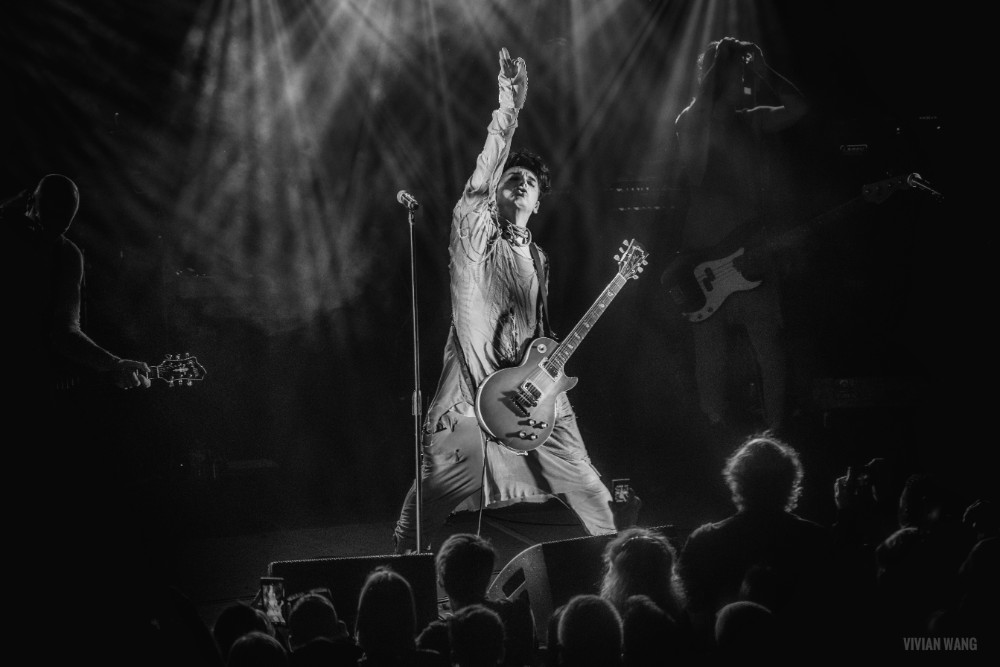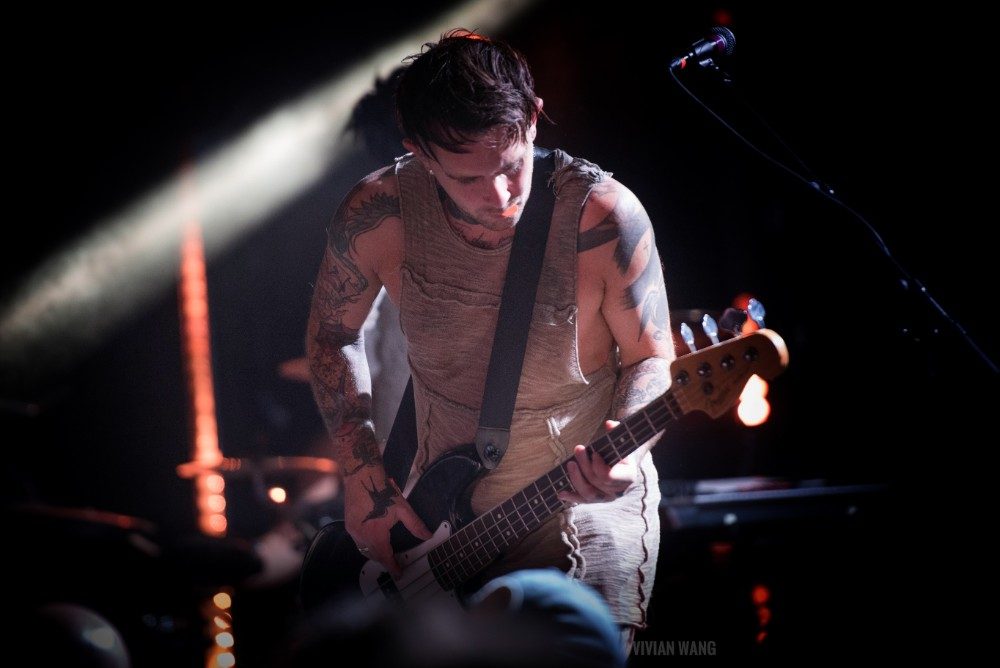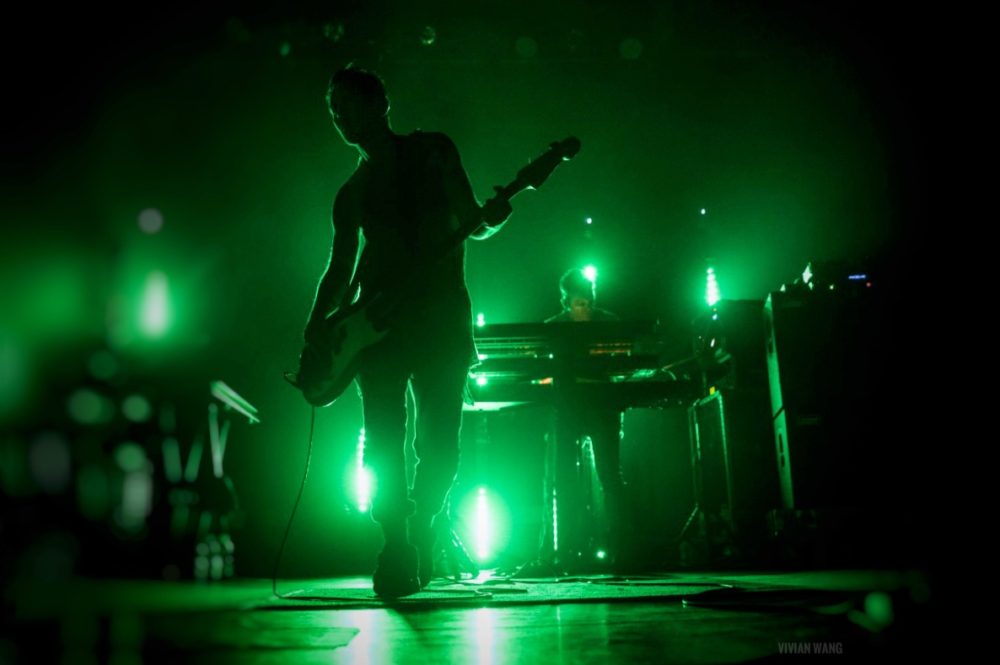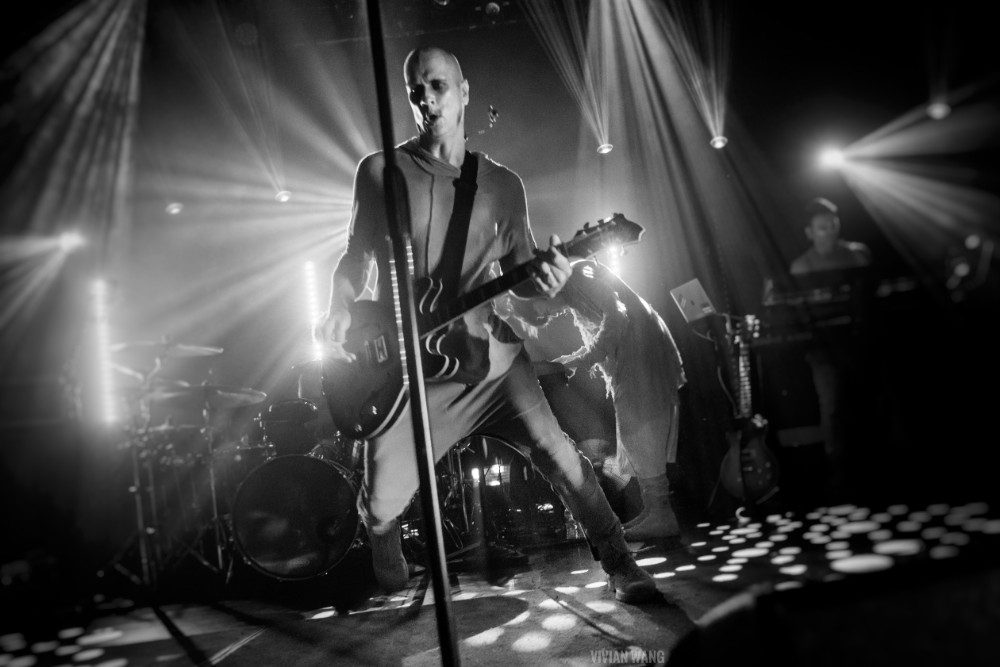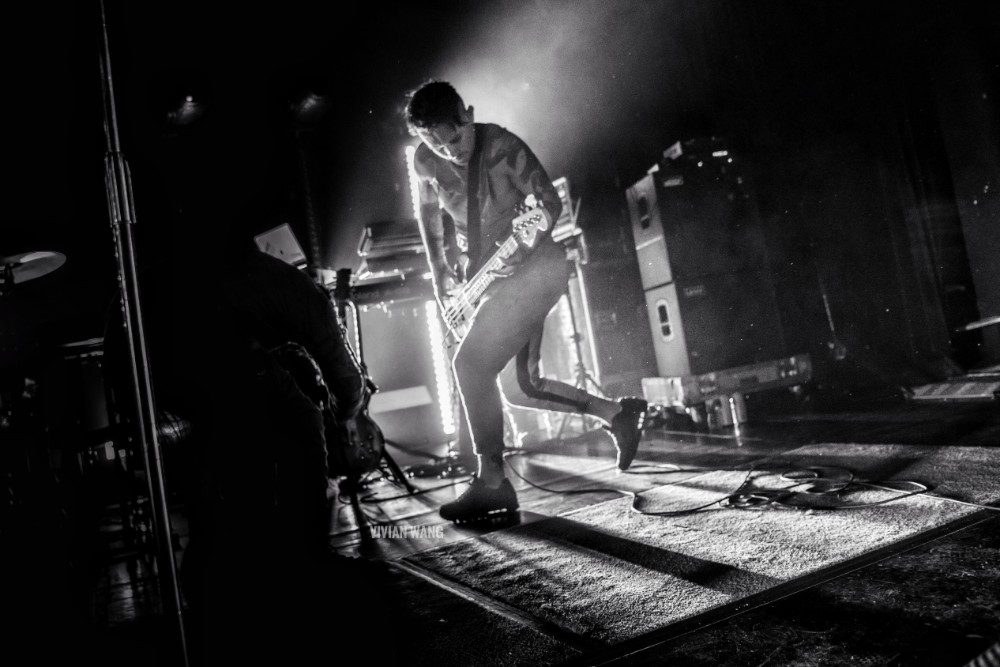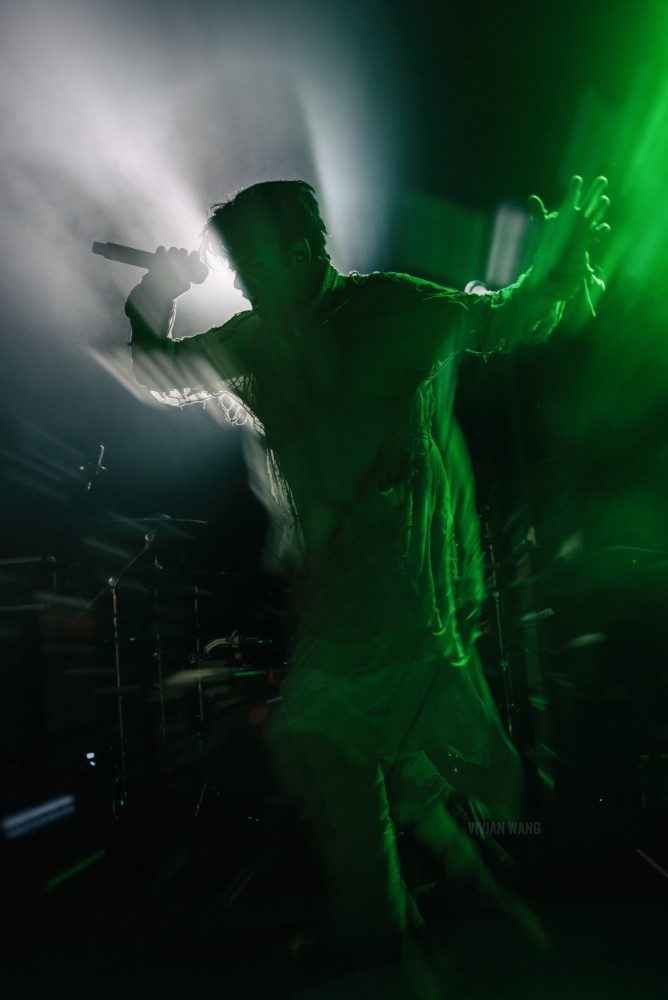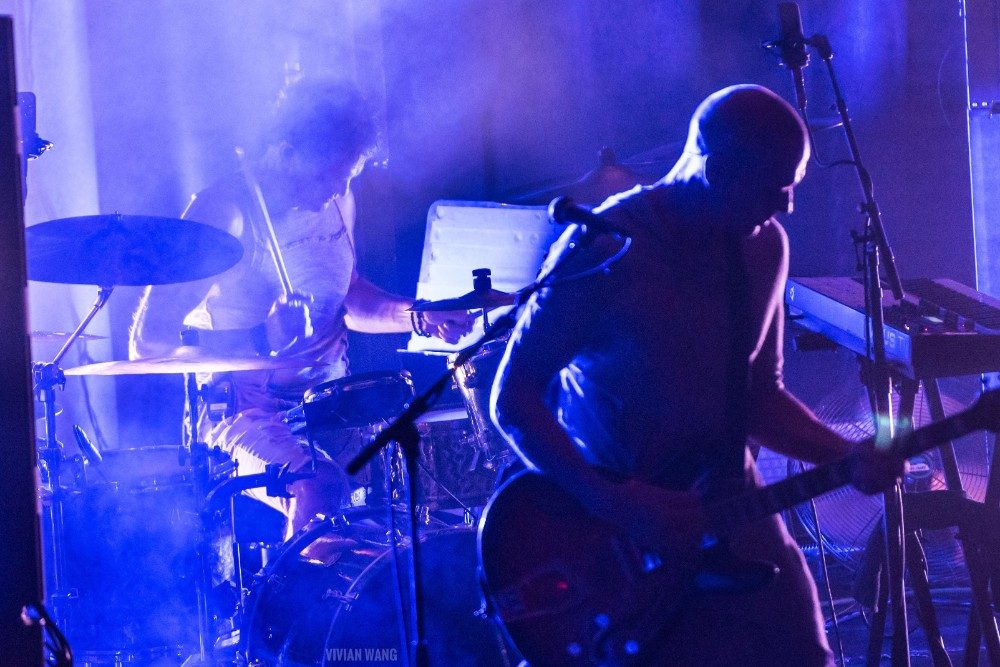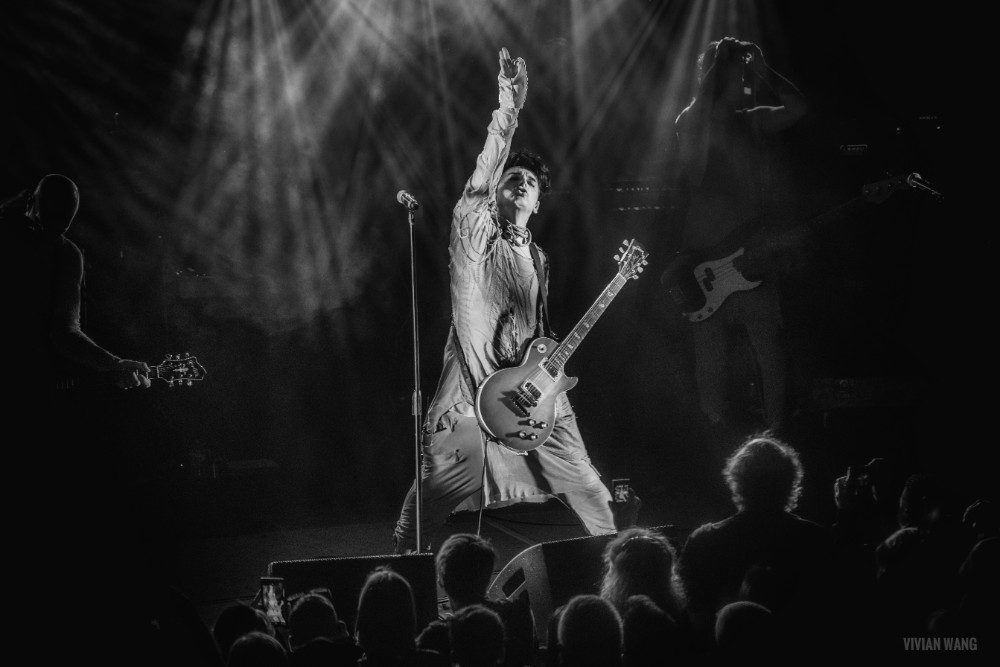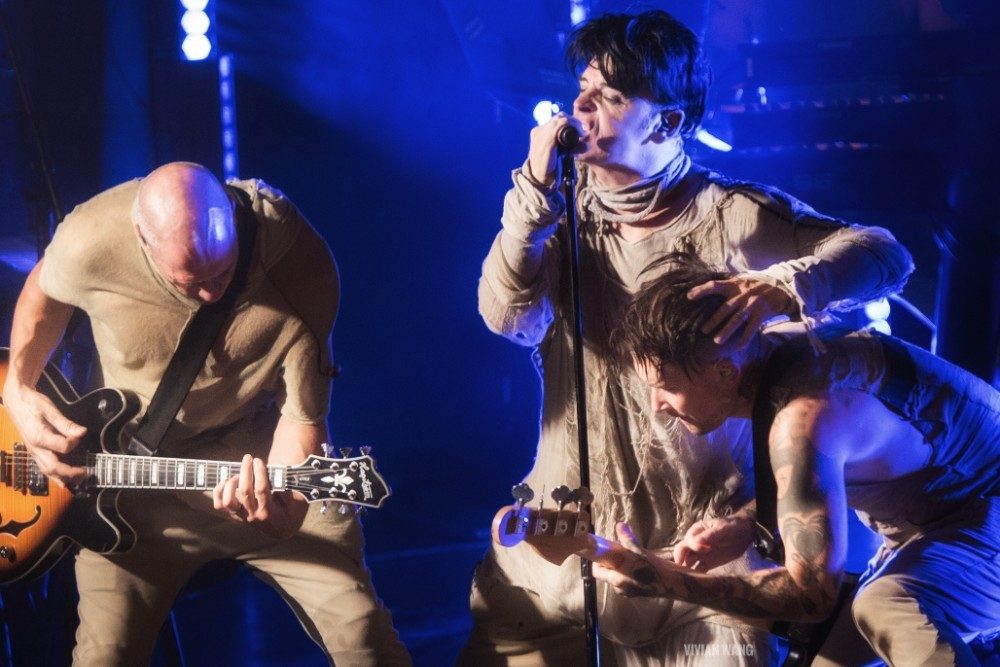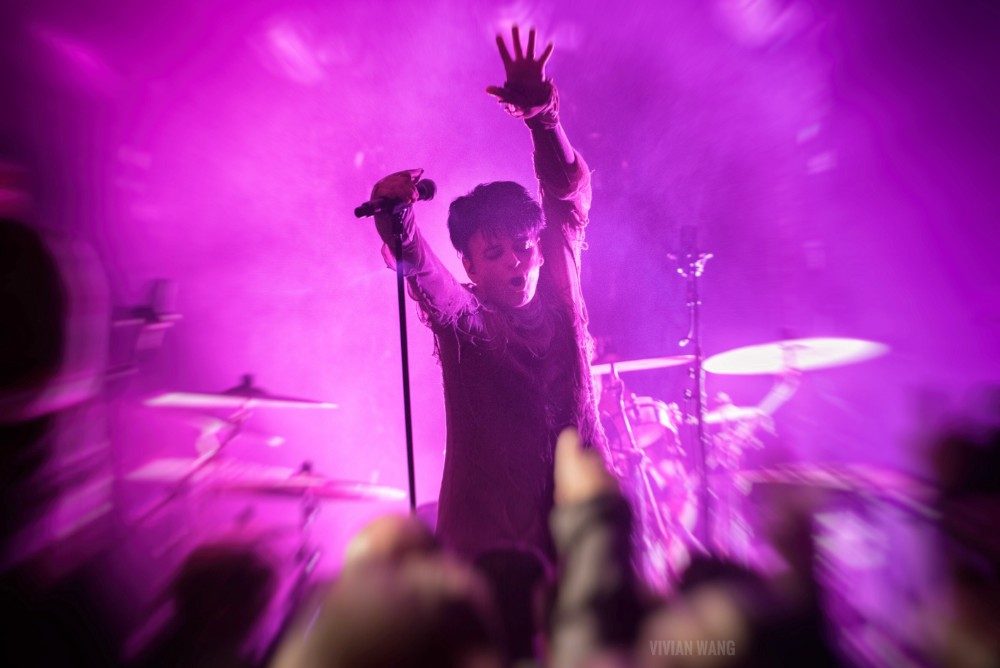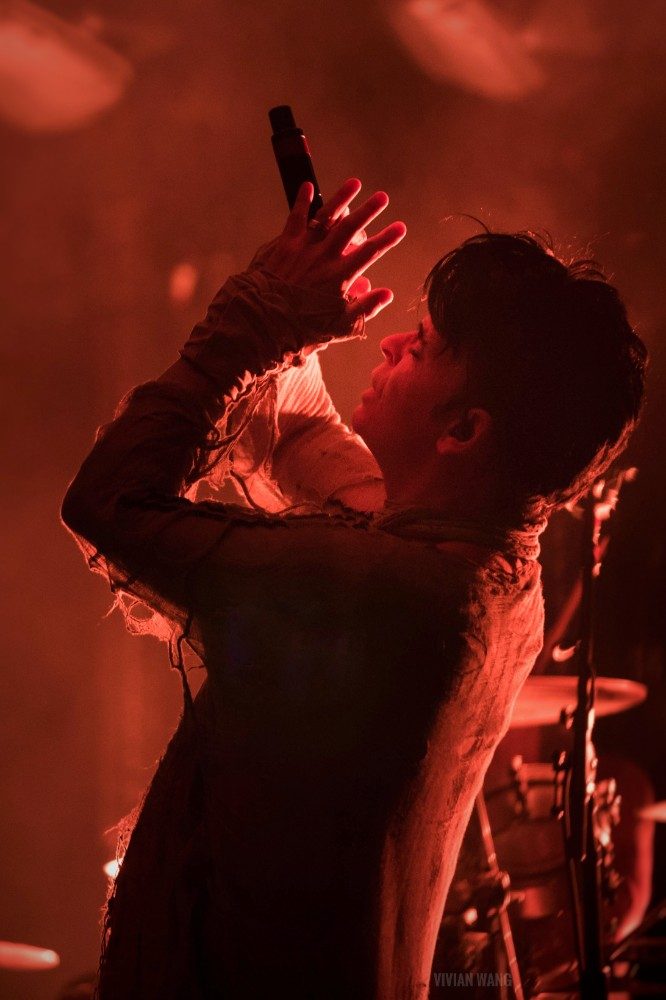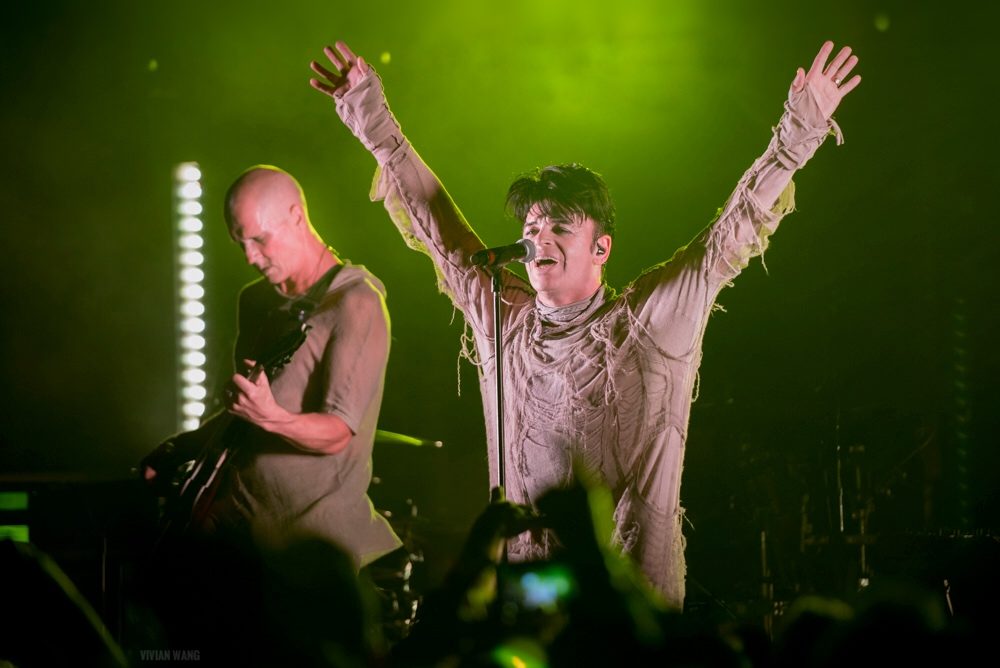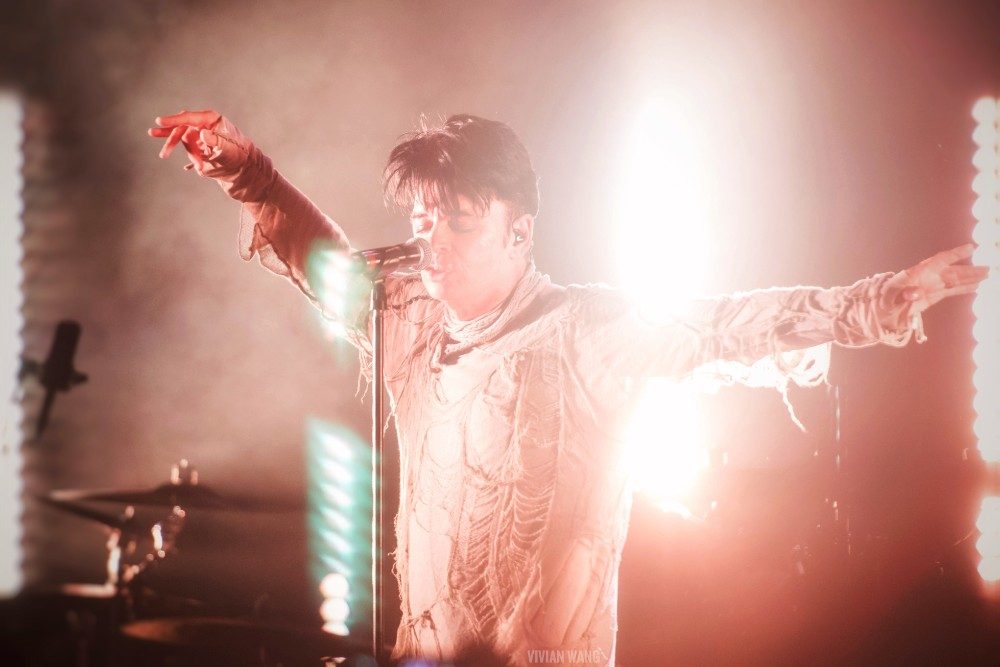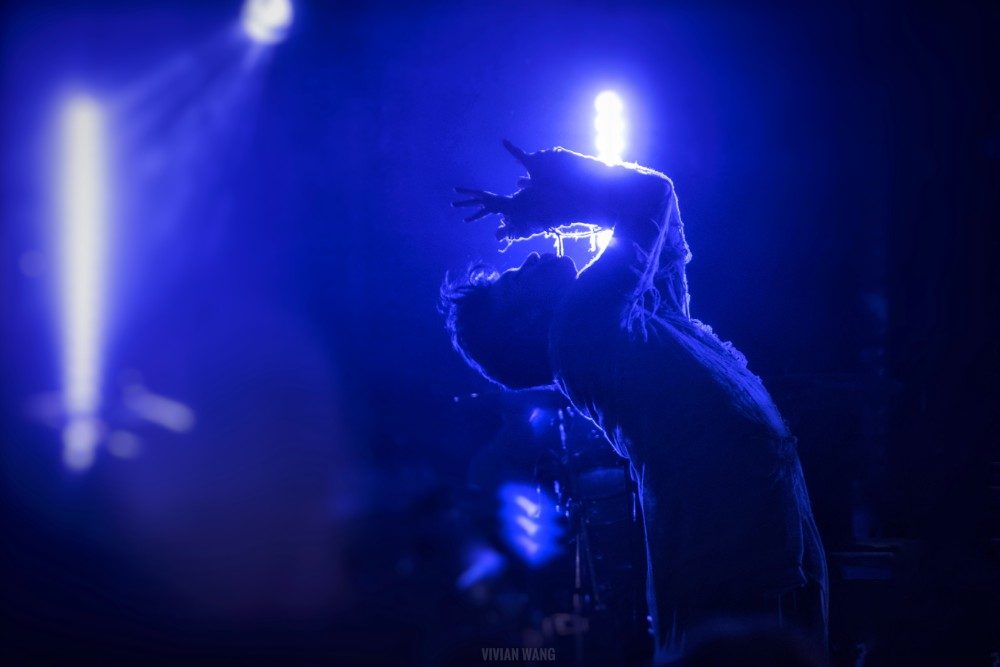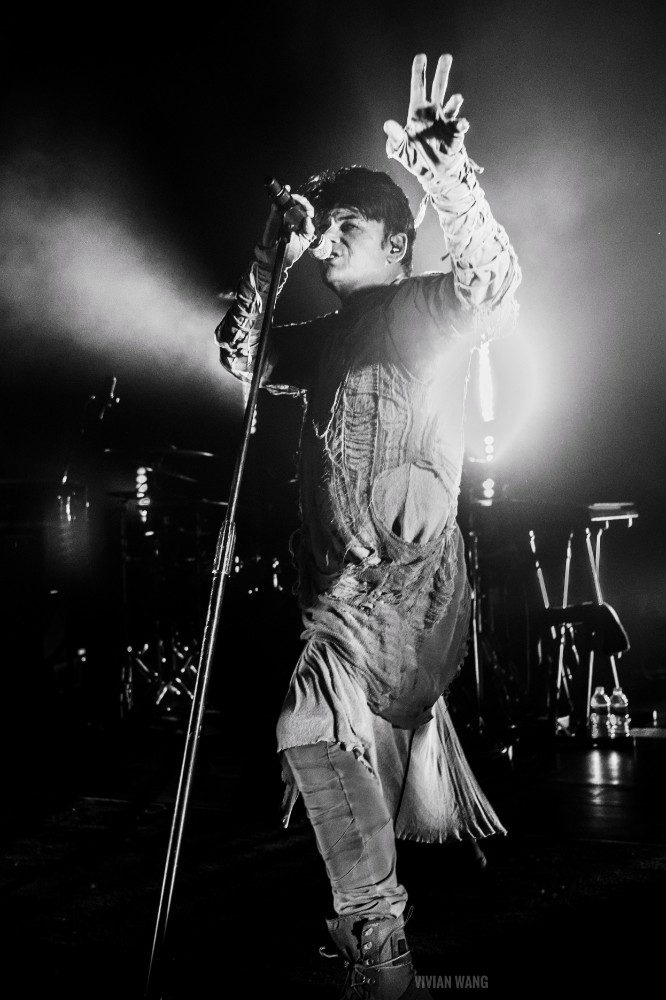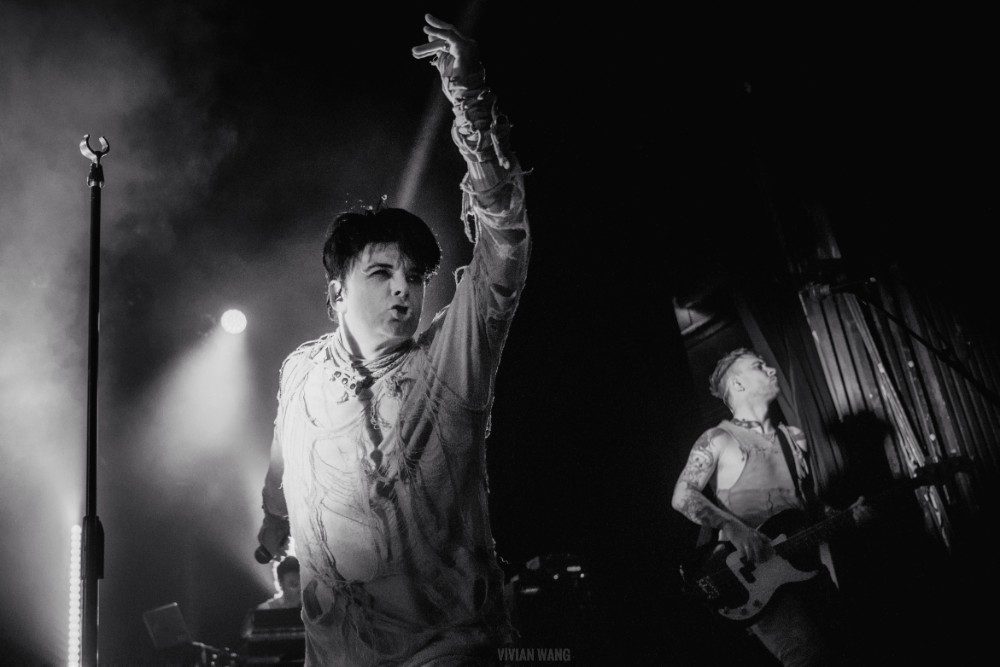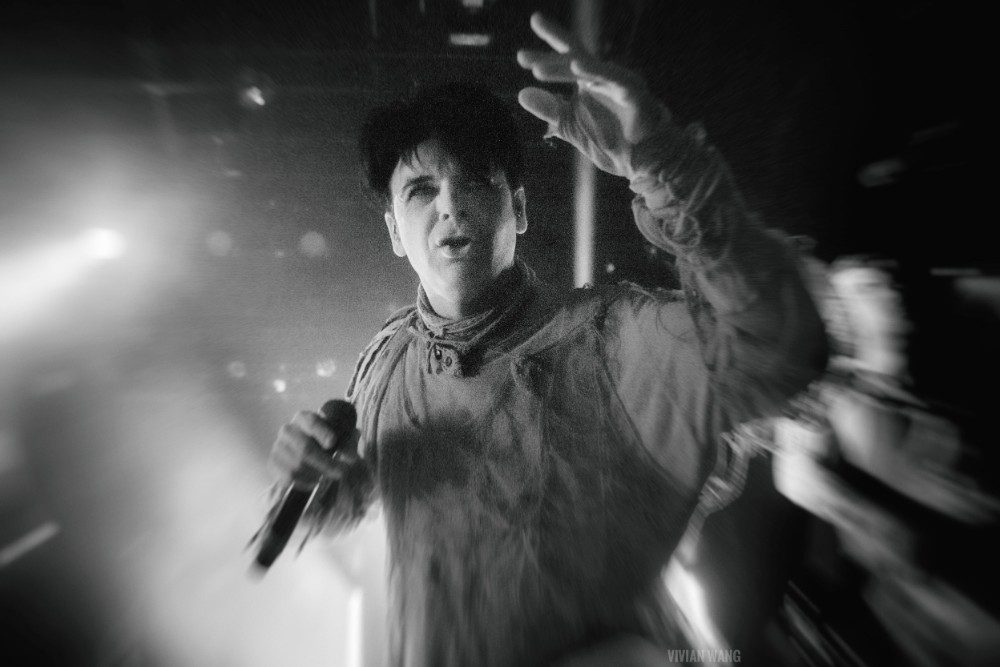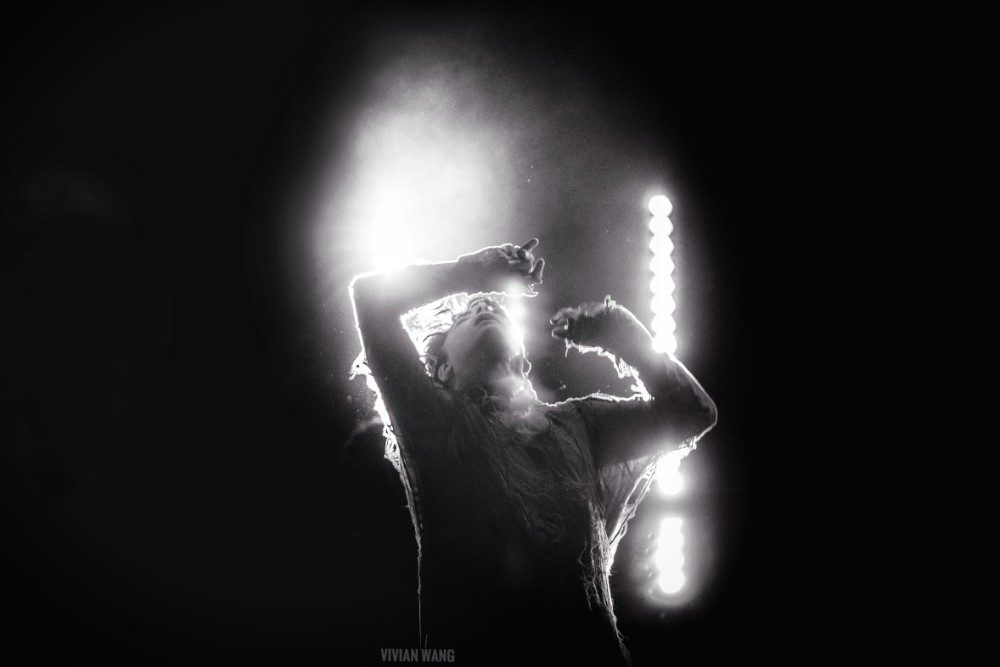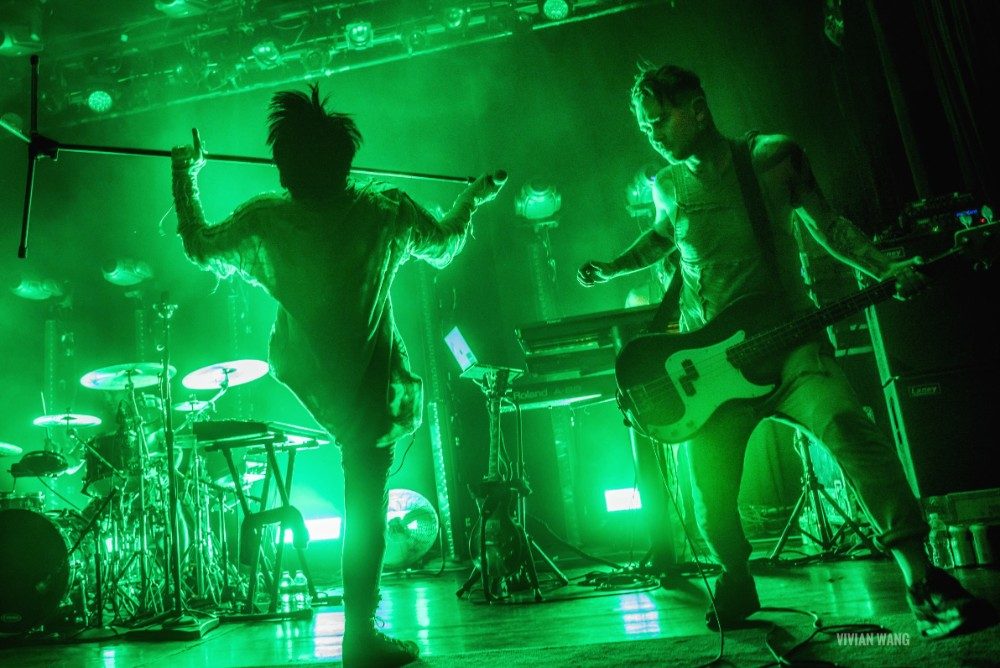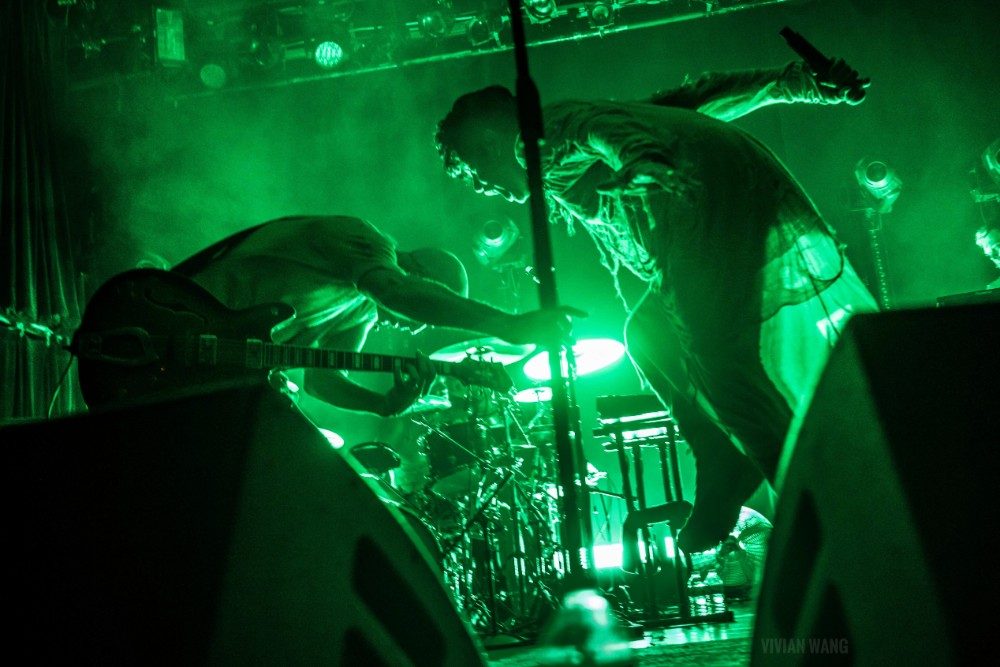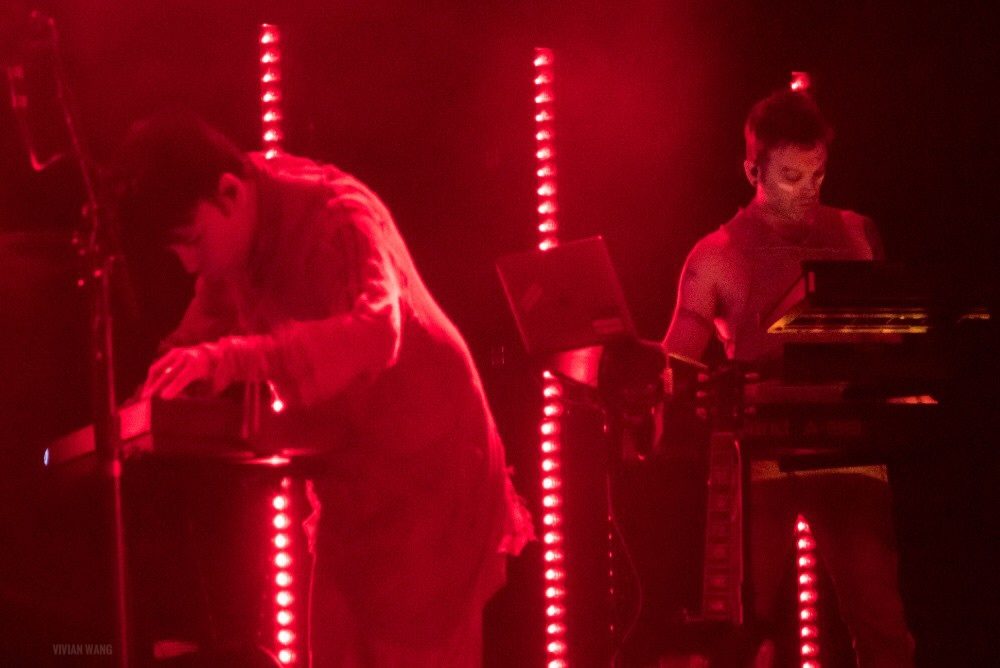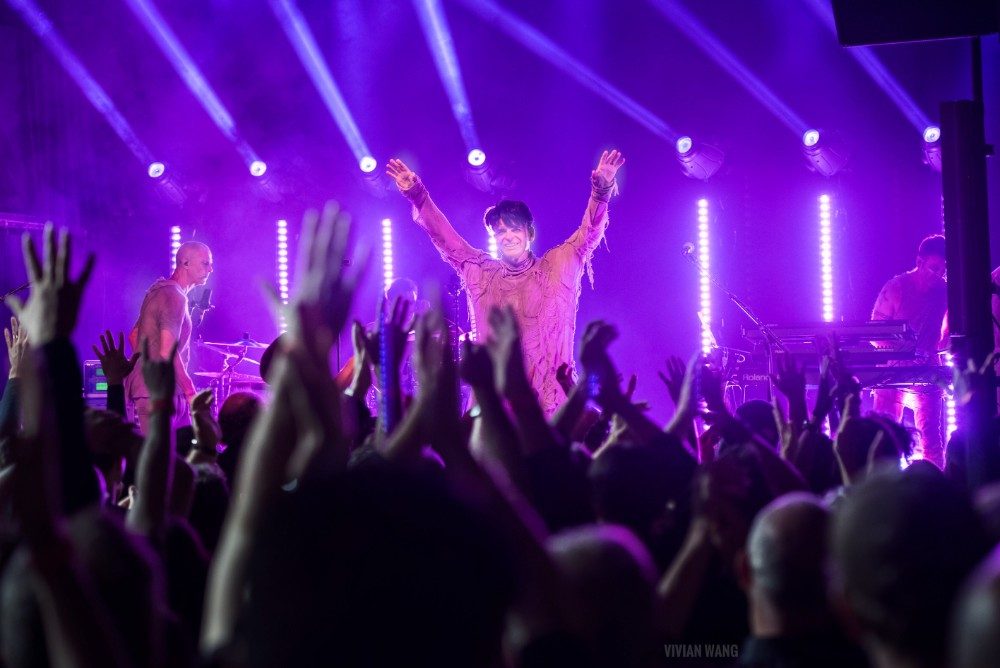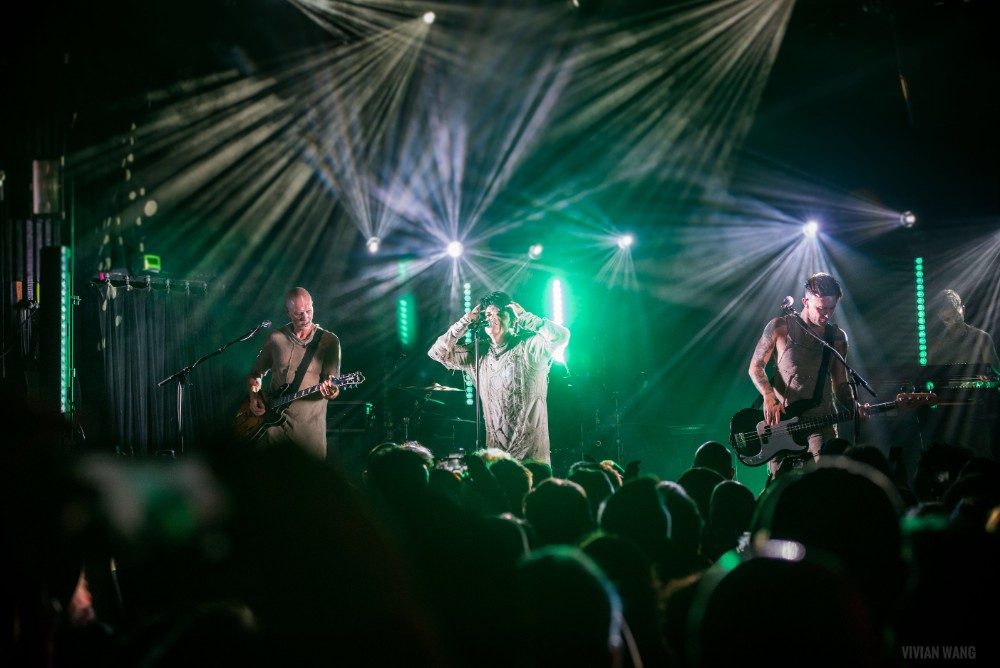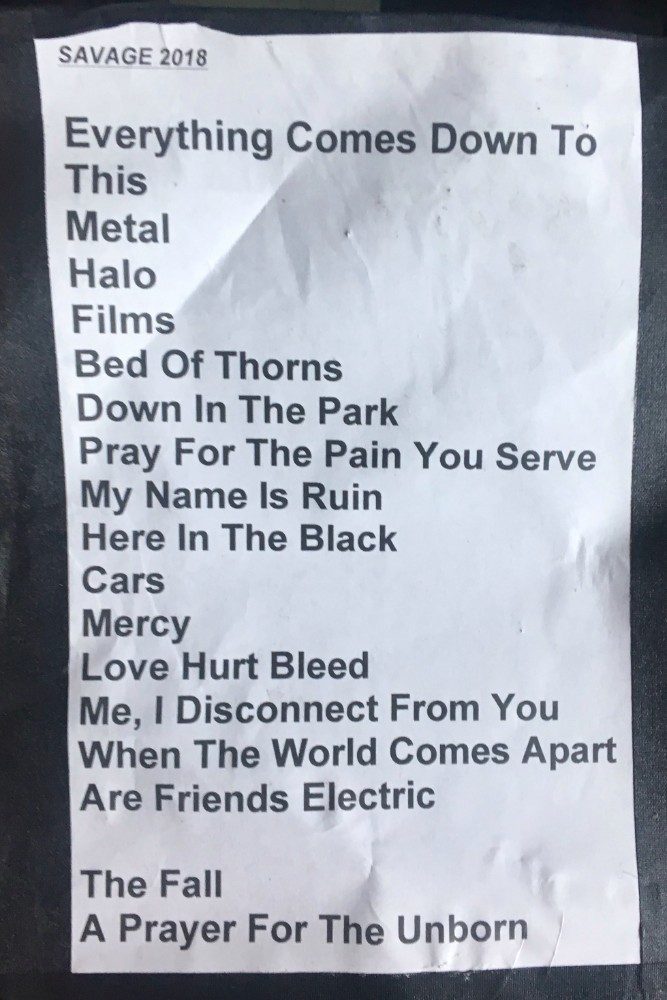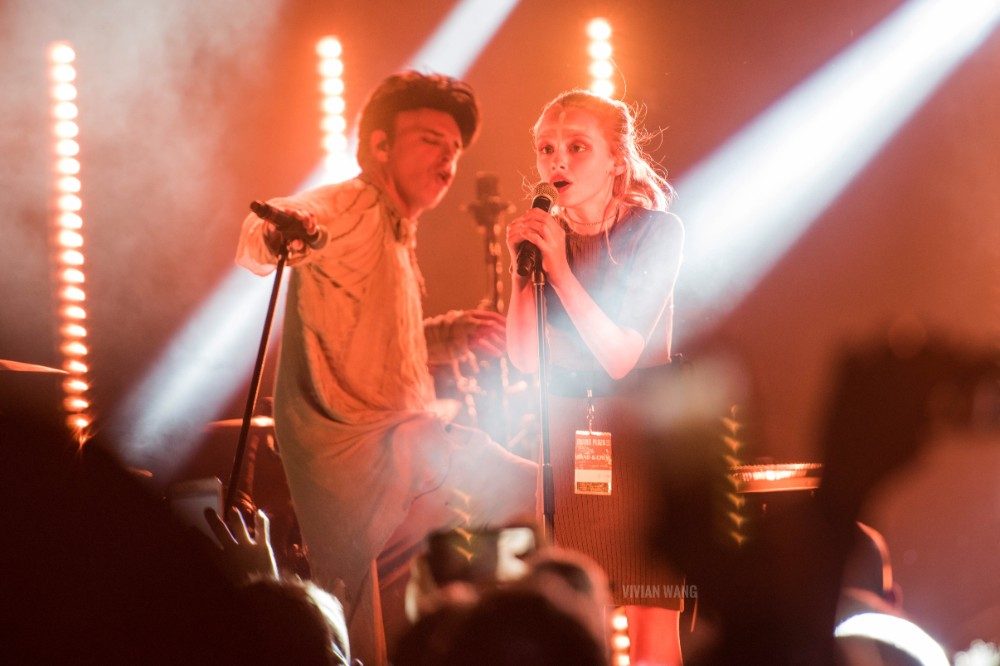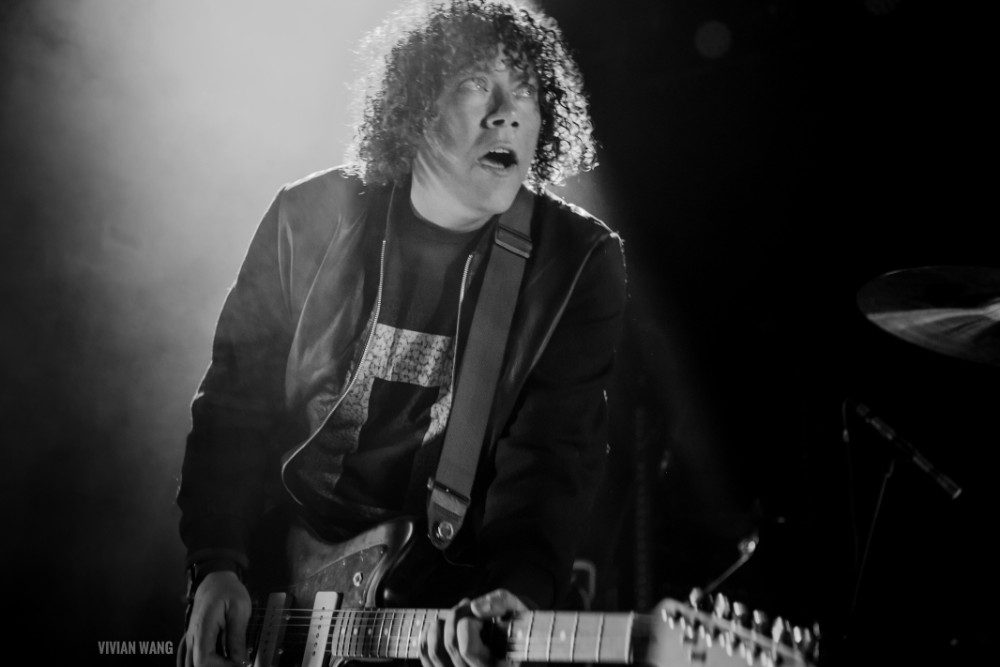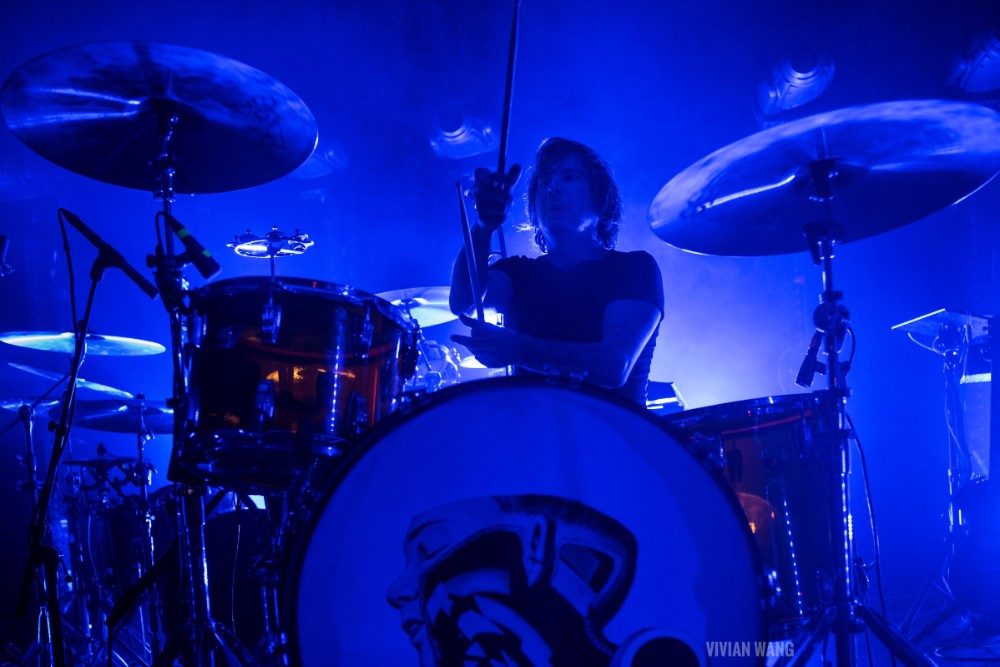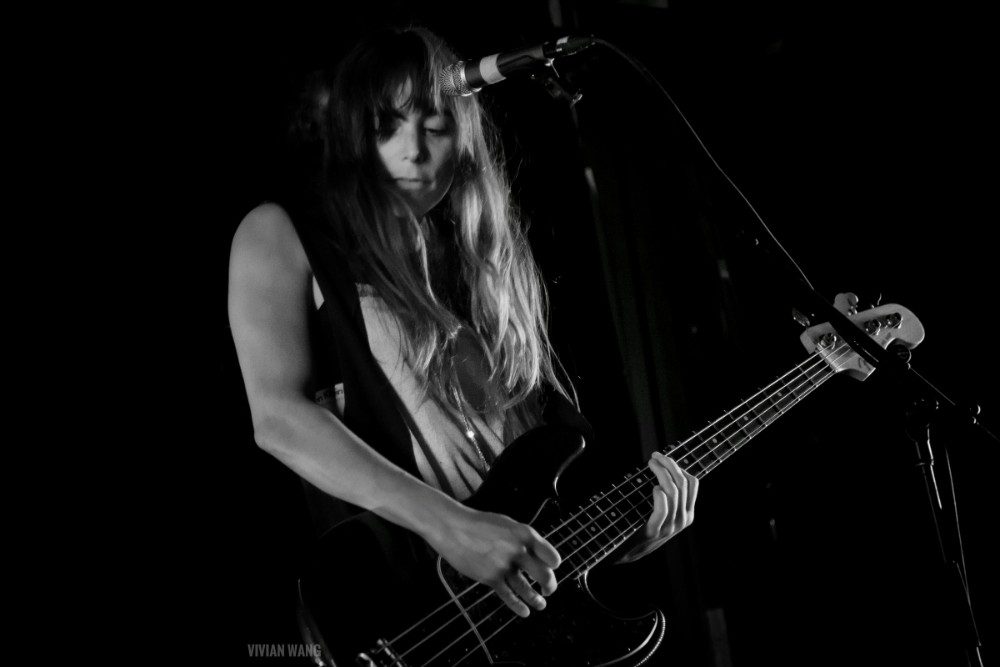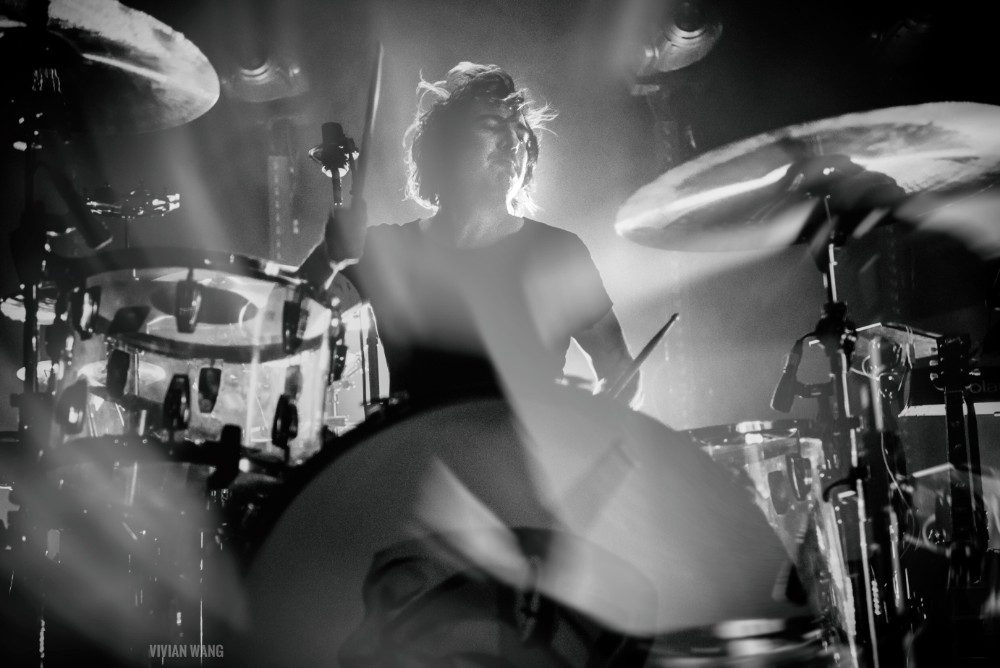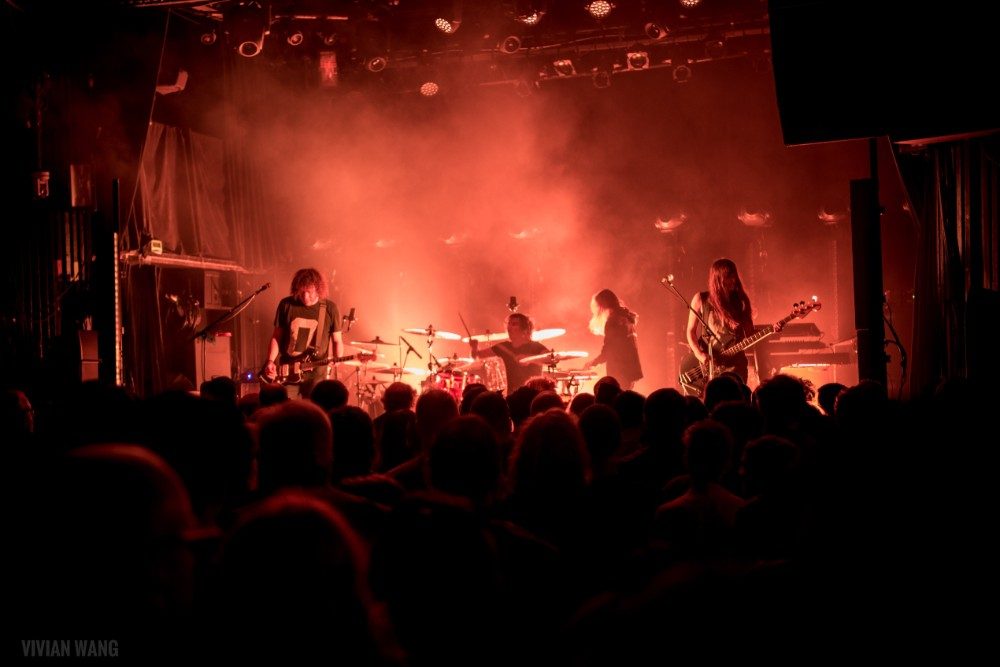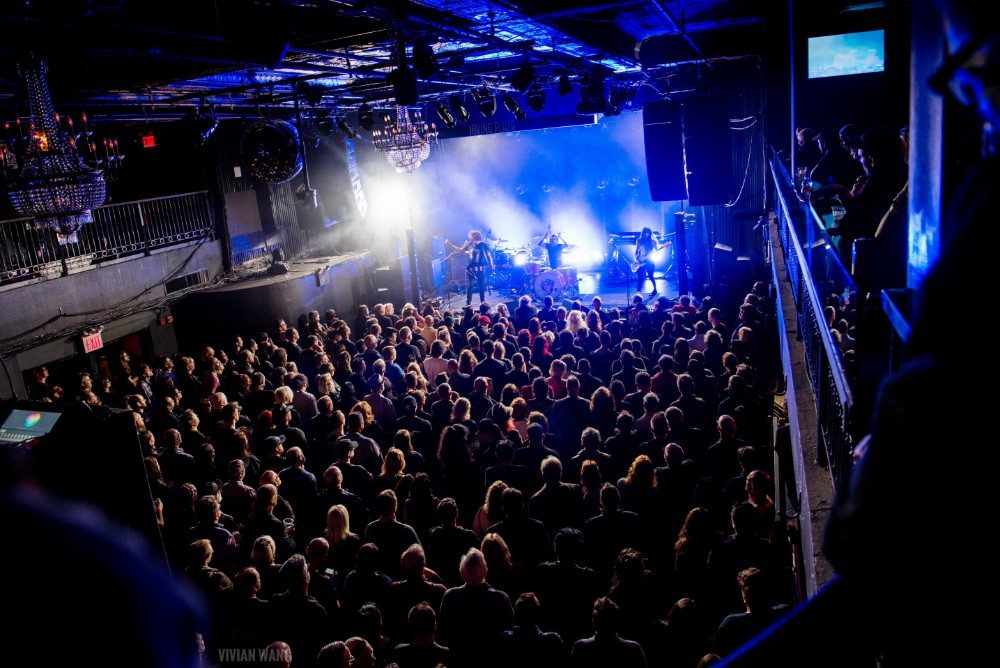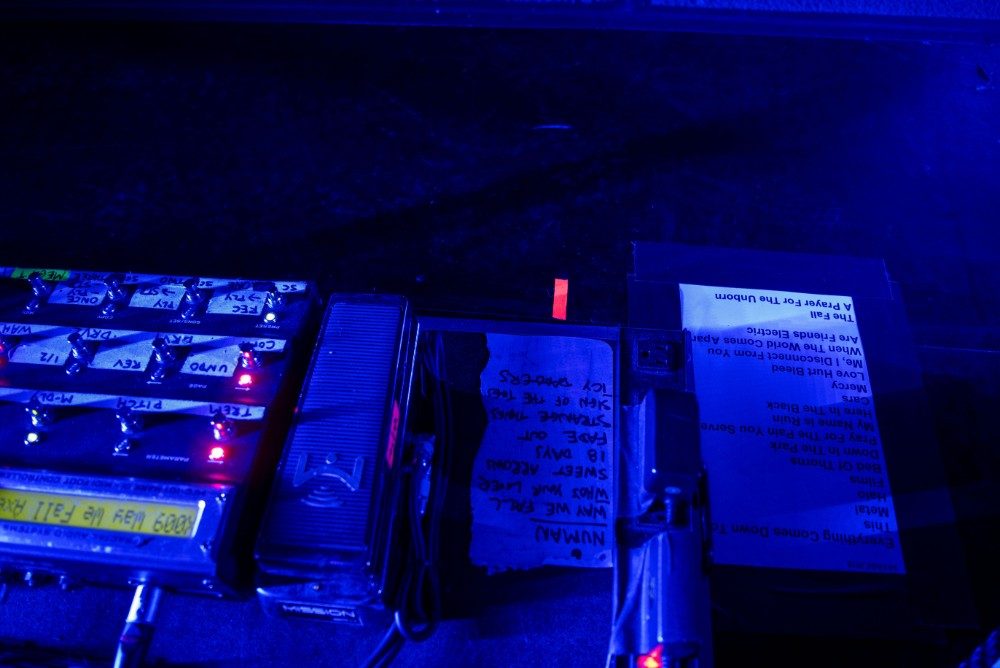When our insatiable greed strips the land, acidifies the ocean, and chokes the air, where do we look for salvation? In Savage (Songs from a Broken World), Gary Numan dives deep into this dystopian vision. The album grew out of two songs Numan penned about a world ravaged by climate change. The English musician moved to Los Angeles before the presidential election, and Trump’s post-truth reality demonstrated an urgent need to address the destructiveness of polarizing rhetoric and fact-free governance. While the album is not overtly political – in a recent interview, Numan explained that global warming “has got nothing to do with Republican or Democrat; it’s a human problem” – the songs are certainly a vehicle for exploring our culpability and testing our ability to change the plotline.
New York’s Irving Plaza was cloaked in darkness on Saturday night as Numan and his bandmates took the stage, launching into “Everything Comes Down to This” from 2013’s Splinter (Songs from a Broken Mind). The uncertainty and dread evoked by the lyrics – I don’t know how this is going to end / I don’t know how this is going to change – was augmented by the angular percussion (Richard Beasley) and ominous growl of distorted guitars (Steve Fox-Harris), bass (Tim Muddiman), and synths (David Brooks). These sonics found an effective juxtaposition in Numan’s fluid, nonstop movement, whipping around the mic stand, his gestures hypnotic: at moments, arms outstretched in a facsimile of a crucifixion, and in other moments, torso arced back, hands lifted in an invocation. With white crosses painted on their foreheads and torn-up sackcloth garments – Numan’s flowing sleeves so threadbare as to be translucent against the staccato bursts of strobes – it was a tableau of ancient rites for the end-times.
At first blush, it would seem that we’ve left behind the buoyant synth-pop of Numan’s 1979 mega-hit, “Cars.” The reverb-laden refrain of Savage’s opening track, “Ghost Nation,” evokes windswept ruins. Its thematic companion, “When the World Comes Apart,” ends with a bleed of synths, like an old broadband radio being tuned into an emergency broadcast. The album situates us in a future that is alien, yet entirely of our own making – think the “real world” of The Matrix or the barren landscapes of Frank Herbert’s Dune.
But despite the heaviness of the lyrics and the industrial rock vibe (if the album makes you think of Nine Inch Nails, that’s because Trent Reznor is heavily influenced by Numan), Numan’s knack for strong melodic currents, catchy riffs, and his widescreen energy made for an energetic, uplifting performance. The bright, upper-register synth opening of “Down in the Park” cuts through the apocalyptic wall of drums, bass, pad, and guitar. That synth line feels like a nostalgia reboot – Jack Ryan or Mad Max resurfacing after decades in the cultural subconscious. And one might worry that just as Jack Ryan seems more naïve than heroic when pulled from the moral clarity of the Cold War into the world of drone strikes and Wikileaks, the synth-pop simplicity of these 80’s hits could feel, in 2018, somewhat asynchronous.
But this sense of dislocation serves Numan well, because in the future world of Savage, nationality holds no meaning (“Bed of Thorns” sets the crisp, cold blips of synths against non-Western scales), and the memories of what was, are all we carry forth. Given this narrative backdrop, the Wagnerian presentation, with strong currents of bass, guitar, and drums, acknowledges that we live in fraught times.
How do we build a future with the broken pieces of the present? The performance of Numan’s daughter, Persia, in “My Name is Ruin,” illuminated the stakes. She appeared like a young Cassandra bathed in golden light, her prophesy in the form of the beautiful quavering riff that defines the song. In contrast to the dynamism of her father and his bandmates, Persia stood stock-still, staring not into the crowd that packed the bi-level venue, but out beyond this place, her expression conveying a steely resolve amidst tragic horror. It was an apt reflection of the troubled world she inherits.
Savage warns us of the consequences of an anti-science, “alternative facts” society that refuses to confront the realities of a changing planet. On Saturday, the energy of the performance and Numan’s assumption of the roles of penitent and supplicant amply filled out these songs, fostering a sense of community and resistance, dancing at the threshold of the apocalypse.
Given the cataclysmic visions of Numan’s latest album, Nightmare Air is a fitting choice as supporting band for the US/Europe tour. The LA-based three-piece is composed of Dave Dupuis, Swann Miller, and Jimmy Lucindo, and the band is named after a skateboard trick from an 80’s film. That mind-warping move – a double kickflip shuv – is a metaphor, perhaps, for the pulsing synths and trippy loops of this music, with gauzy harmonies defying the gravity of the bass-soaked songs. Check out Fade Out, released earlier this year, here.
Listen to Gary Numan’s latest album on Spotify and pick up a physical copy here. Upcoming tour dates with Nightmare Air are listed here.
Article: Vivian Wang & Daniel Carpenter-Gold

